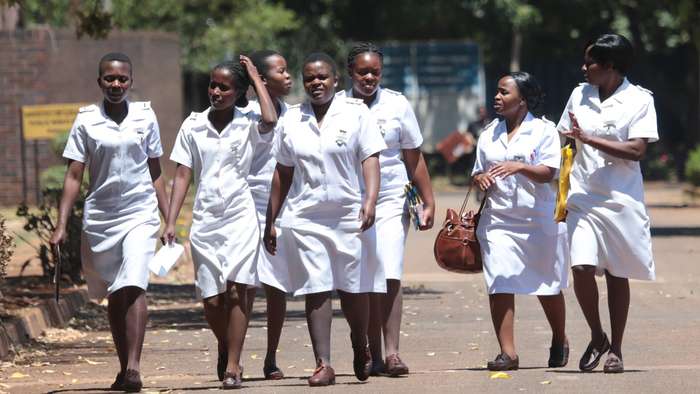
The World Health Organisation (WHO) has published a revised list of health workforce support and safeguards, which identified 55 countries, Nigeria inclusive, as having need for additional health workers in order to be able to reach the UN Sustainable Development Goals (SDGs) objective of Universal Health Coverage (UHC) by 2030.
At least 75 nurses have been taken to court by the Texas Board of Nursing due to issues related to forging documents. Of these, 43 were Nigerian.
A post on the Board's website, titled ‘Operation Nightingale', contained this information.
The Board took note of the fact that those who had obtained fraudulent credentials used them to be eligible to take the National Nursing Board exam.
Upon passing the board exam, applicants can receive licensure to work as Registered Nurses (RN) or Licensed Practical/Vocational Nurse (LPN/VN) in various states.
The Board declared that it had submitted formal charges against the nurses for obtaining educational qualifications deceitfully.
However, WHO stated that the impact of COVID-19 and widespread disruptions to health services resulted in a rapid acceleration in the international recruitment of health workers. It said for countries losing health personnel to international migration, this could negatively impact health systems and hinder their progress towards achieving UHC and health security.
Of the 55 countries, 37 are in the WHO African region, eight in the Western Pacific, six in the Eastern Mediterranean, three in the South East Asia and one in the Americas. Eight countries have been newly added to the WHO health workforce support and safeguards list 2023 since its original publication in 2020.
WHO Director-General, Dr Tedros Ghebreyesus, said: “Health workers are the backbone of every health system, and yet 55 countries with some of the world’s most fragile health systems do not have enough and many are losing their health workers to international migration.
“WHO is working with these countries to support them to strengthen their health workforce, and we call on all countries to respect the provisions in the WHO health workforce support and safeguards list.”
The list was suggested to be employed in order to raise awareness, discuss policies at all levels and fund health workforce education and employment in those countries.
The WHO health workforce support and safeguards list 2023 includes countries with a UHC service coverage index lower than 55 and a health workforce density that is below the global median of 49 medical doctors, nurses, and midwives per 10,000 people. These countries need priority support for the enhancement of their health workforce and health systems, in addition to safeguards to restrict active international recruitment.
The WHO health workforce support and safeguards list 2023 includes countries with a UHC service coverage index lower than 55 and a health workforce density that is below the global median of 49 medical doctors, nurses, and midwives per 10,000 people. These countries need priority support for the enhancement of their health workforce and health systems, in addition to safeguards to restrict active international recruitment.
According to the statement, the WHO health workforce support and safeguard list 2023 does not prohibit international recruitment, but recommends that government-to-government health worker migration agreements: be informed by health labour market analysis and the adoption of measures to ensure adequate supply of health workers in the source countries; engage ministries of health in the negotiation and implementation of agreements; and specify the health system benefits of the arrangement to both source and destination countries.
It is recommended by WHO that these safeguards be extended to all countries with low and middle incomes.
The WHO Global Code will be updated every three years, with the 2023 update being based on the report of the WHO Expert Advisory Group on the Relevance and Effectiveness of the WHO Global Code. The next update is slated to come out in 2026, the agency noted.
It said this issue will be discussed at the upcoming Fifth Global Forum on Human Resources for Health, which will examine the required policy solutions, investments, and multi-sectoral partnerships to address health and care workforce challenges to advance health systems towards the attainment of UHC and health security. The WHO said the outcomes of the Forum would inform the United Nations General Assembly’s High-Level Meeting on UHC in September 2023.













